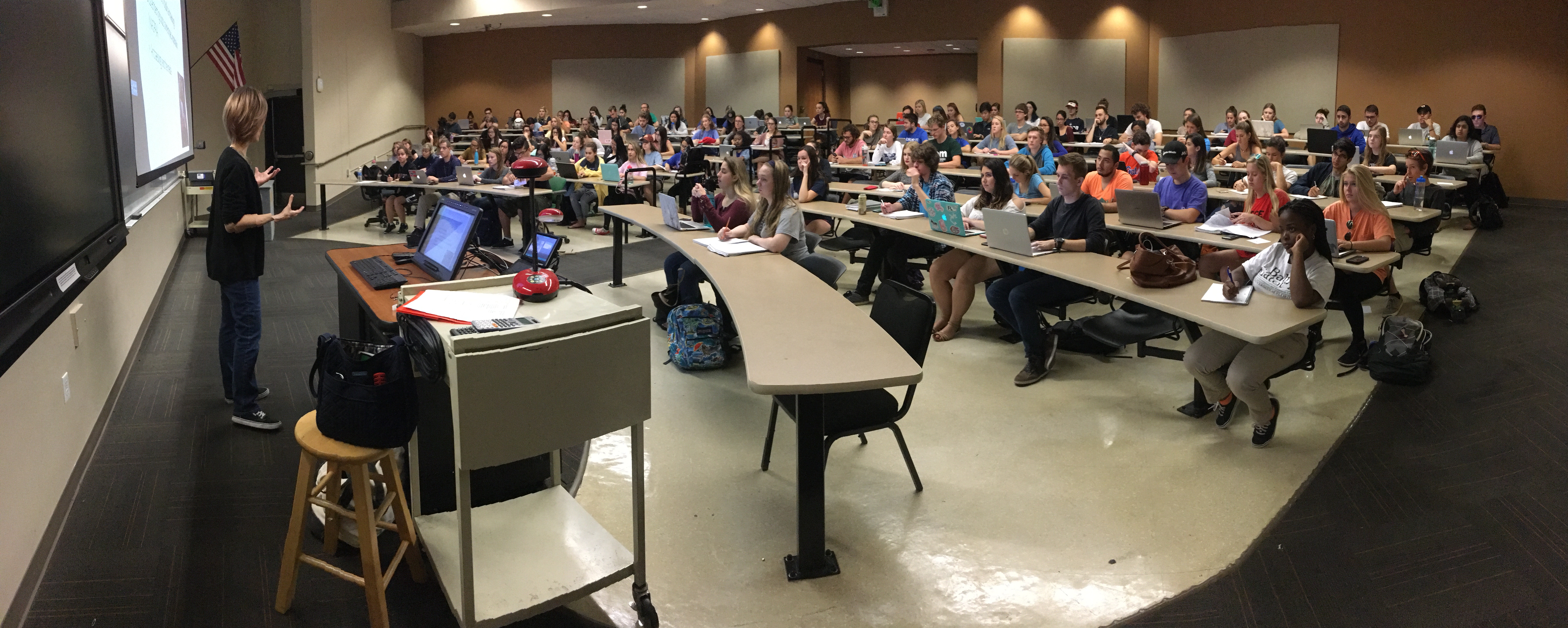Anthropology is an exciting and interesting area of study for students at the University of Florida. Anthropology is the study of people in their cultural and historical contexts and the examination of all aspects of patterned social practice. The discipline is worldwide in scope, encompassing all aspects of human biological and social life from the earliest times to the present. Anthropology is a broad, holistic field that seeks to understand human diversity in all of its biological, social, and cultural dimensions, throughout history and across the globe. Traditionally, anthropology includes the following four subfields: cultural anthropology, archaeology, biological anthropology and linguistics.
Why Anthropology?
A Bachelor’s degree in Anthropology prepares students to work in today’s complex world, where international activities characterize business, government, and education, and an understanding of human interaction can empower a number of professions. Anthropology majors learn about different groups of people, their ancient history and their diversity through a discipline that combines science and the humanities. Many undergraduate Anthropology majors go on to graduate school in the social sciences, while others use Anthropology to prepare themselves for professional careers. Explore more about the applications of and approaches to Anthropology.
However, not all undergraduates who major in anthropology intend to pursue graduate studies. Some students choose anthropology because of its unique perspectives on culture, social, and biology diversity. Others hope to pursue studies in professional programs at the University of Florida or other institutions in the fields of law, medicine, education, library science, public affairs, urban planning, and more.
Those majors planning to enter one of the professional colleges should seek counseling from the Office of Health and Legal Professions at the Academic Advising Center. Other resources regarding graduate work and career planning can be found at the Career Resource Center in the Reitz Union.
 Those who are considering careers as professional anthropologists should consult with Department faculty about opportunities for graduate study in our PhD program. Also, starting in Fall 2023, the Department offers a Combination Degree option for Anthropology majors. The program enables students to earn up to 12 credits of graduate coursework towards a terminal MA in Anthropology. Structured by a Graduate Certificate in Public Archaeology, the new terminal MA program provides training in Cultural Resource Management (CRM) for careers with private sector firms, government agencies, and tribal historic preservation offices.
Those who are considering careers as professional anthropologists should consult with Department faculty about opportunities for graduate study in our PhD program. Also, starting in Fall 2023, the Department offers a Combination Degree option for Anthropology majors. The program enables students to earn up to 12 credits of graduate coursework towards a terminal MA in Anthropology. Structured by a Graduate Certificate in Public Archaeology, the new terminal MA program provides training in Cultural Resource Management (CRM) for careers with private sector firms, government agencies, and tribal historic preservation offices.
The Department of Anthropology at the University of Florida is ranked as one of the best in the country. There are over 40 anthropologists on campus. In addition to the teaching faculty, anthropologists hold appointments at the College of Medicine, the College of Nursing, the Florida Museum of Natural History and the C. A. Pound Human Identification Laboratory. Anthropology at the University of Florida is especially strong in Latin American Studies, African Studies, Southeastern Archaeology, Applied Anthropology and Forensic Anthropology.
Some examples of course topics:
Sociocultural Anthropology:
Urban and peasant societies, medical anthropology, crisis and disasters, human rights, refugees, Diaspora studies, sex roles, women and development, North and South American ethnography, gender studies, environmental anthropology
Archaeology:
African archaeology, Central and South American Archaeology, Caribbean, Florida and North American archaeology, lithic technology, ethnoarchaeology, zooarchaeology, geoarchaeology, pottery analysis, dietary reconstruction, GIS, and field schools.
Biological Anthropology:
Paleoanthropology, bioarchaeology, nutritional anthropology, primatology, human osteology, forensic anthropology, molecular anthropology
Linguistics:
Native literacy, language and gender, linguistic theory